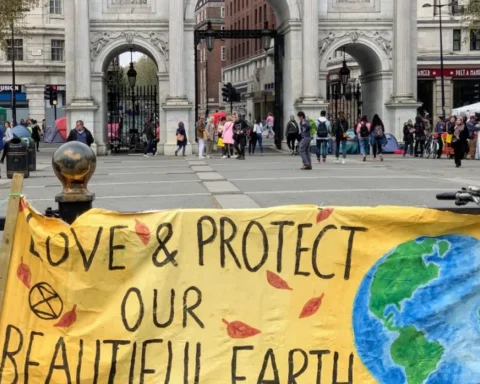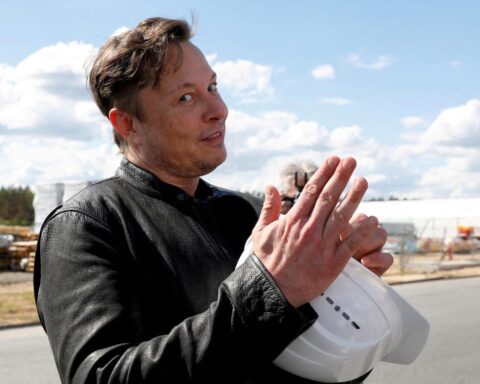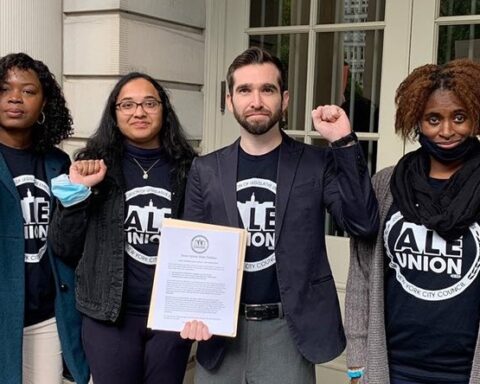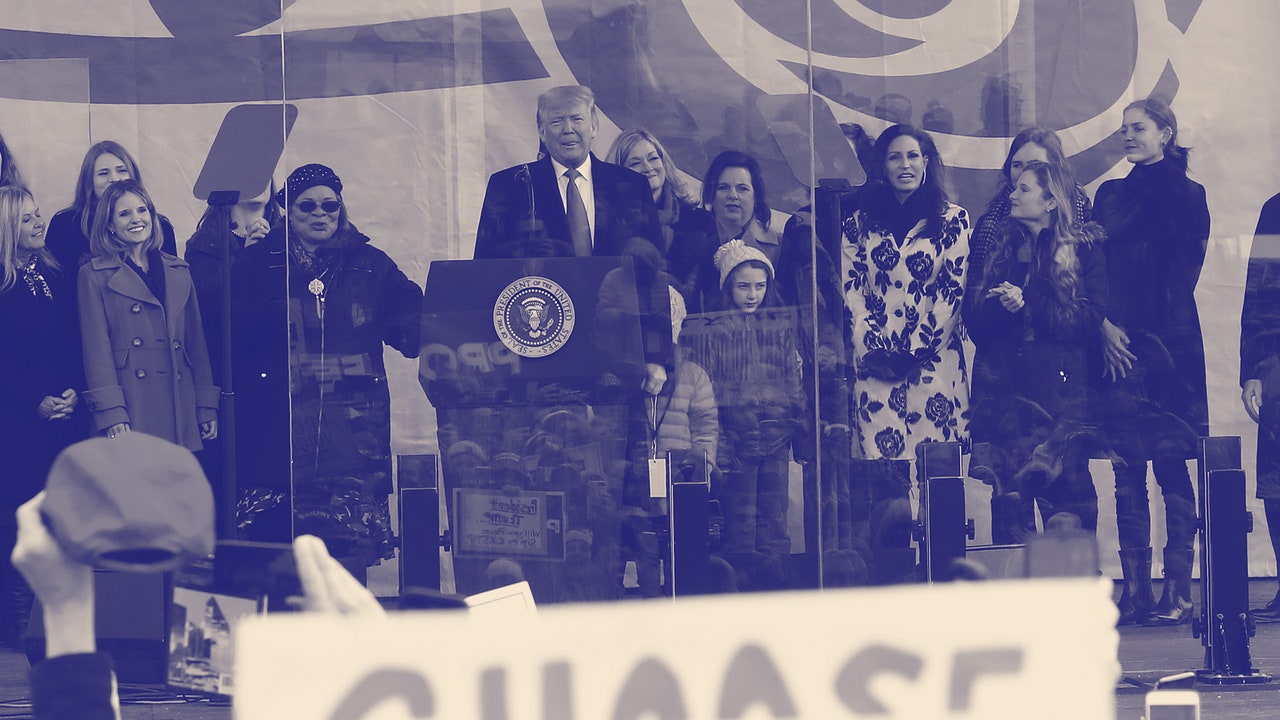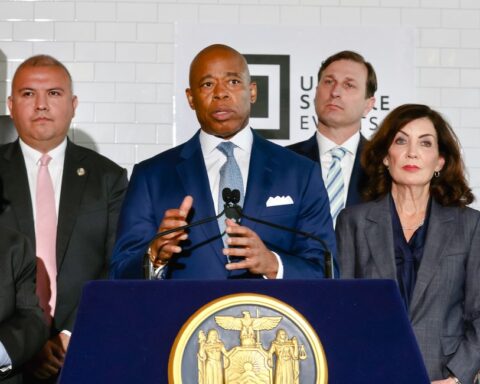In light of the Supreme Court’s Dobbs decision, which, last summer, struck down Roe v. Wade, Republican politicians have been debating how far to push abortion bans at both the state and federal level. Meanwhile, former President Donald Trump has blamed anti-abortion advocates for G.O.P. losses in the 2022 midterms; Democrats believe that campaigning on abortion access will continue to help them win elections. This has led to skirmishes among the contenders for the 2024 Republican Presidential nomination, with Trump attacking the six-week abortion ban signed last month by Ron DeSantis, the governor of Florida and Trump’s strongest rival, as too extreme. DeSantis, in turn, criticized Trump from the right. (The Trump campaign has stated that the issue should be decided by individual states, a signal that Trump would not pursue a federal ban on abortion if he were reëlected.)
I recently spoke by phone with Marjorie Dannenfelser, the president of Susan B. Anthony Pro-Life America, a nonprofit organization that supports pro-life politicians, which she has helped lead for three decades. In 2016, Dannenfelser had been “disgusted” by Trump’s treatment of women, but went on to support him that year and in 2020. (She also served as the leader of his campaigns’ Pro-Life Coalition.) Given that so many pro-life leaders justified their initial support for Trump by pointing to his stance on abortion, I wanted to talk to her about how the movement was viewing the 2024 election, in which a number of potential Republican Presidential candidates—including DeSantis and former Vice-President Mike Pence—have indicated a more extreme anti-abortion position than Trump’s. (Dannenfelser recently met with and praised Trump, despite his unwillingness to commit to further restrictions on abortion.)
Our conversation, edited for length and clarity, is below.
What do you see as the goals of the pro-life movement post-Dobbs?
The most important way to put it would be that we should be as ambitious for life and mothers as we can possibly be without overreaching, so that we can enact laws to protect lives and serve women. We are doing that on the state level and also pressing on the federal level for a minimum standard.
There was a lot of rhetoric about how the end of Roe meant that the issue of abortion regulation would be sent back to the states. Is there division among pro-lifers about whether that should be the case, or whether it’s a federal issue that Republicans should try to tackle at the national level?
No, there is no division among leaders of the pro-life movement, which is not the Republican Party. The pro-life movement is separate and distinct, and there’s been agreement over decades among pro-life-movement leaders that there should be national protections as well as state ones. My approach is to be as ambitious as we can be on the national level while allowing states to be ambitious themselves. The national consensus should not predict what a state does, but a national consensus should at least achieve a minimum standard.
How do you feel that the politics of Dobbs have played? Do you think the decision hurt Republicans?
When the story is written decades from now, everyone will see that there was a political tsunami toward the midterm elections, and that people who walked along as they’d always walked along were going to get wiped out by the tsunami. That’s exactly what happened with most Republican candidates, and that’s why we call it the “ostrich strategy.” They pretended it was like any other day of the week, or any other election, and it wasn’t.
So, yes, I would agree that the abortion issue hurt many of them, because they engaged in the ostrich strategy. They decided that they could not contrast their own reasonable position of fifteen weeks or whatever with the extreme position of their opponents of no limit, so they decided to not communicate that, and instead the other side painted a picture of them that was not true, which said they were all for a ban. None of them were for a ban. Literally no one was for a ban. A ban means stop all abortions. But they just let that stick and they were hurt—that’s political malpractice, and it’s also morally wrong. So I agree with that assessment, but it was their own fault.
You recently met with President Trump. What was your conversation like?
Just so you know, I met with him and every other person who has either announced or looks to be announcing. The conversations are basically the same. It’s vital to name a consistent limit and contrast that with your opponents. Our position is that anyone who’s running for a federal office who says that it’s a state-only job cannot receive the support of the pro-life movement. I’d already said that before the meeting, and that meeting that I had with former President Trump was to talk about what a national standard might look like.
Trump recently wrote, on Truth Social:
What did you think of those comments?
Oh, clearly, I disagree. We were there in force, four times the amount that we were when he was elected, in 2016, meaning four times the number of voters contacted and homes visited, and just our general engagement is massively stronger than it was even in his first run. There’s no sense of being invisible. The difference is that federal candidates were employing the ostrich strategy of not speaking at all, so the volume wasn’t as high. Basically, you had federal candidates saying, “Let’s just pretend this isn’t happening.” There were some notable exceptions, but many of them—that’s how they handled it.
You just said that it was important for people you support not to say that this issue should be left to the states. That’s the Trump campaign’s position, which you recently characterized as “morally indefensible.” Were you reassured in your meeting with him?
Yeah, I was reassured in the meeting. I don’t know where he’s going to come down, specifically, but I was reassured that the spokesman for him was perhaps wrong, or it was taken out of context, or whatever. I do think that the former President thinks that there is a line to be drawn. I just don’t know what it is.
So you didn’t get that from the meeting?
No. The basic principle that I think we all agreed on was that, when a baby feels pain, sucks its thumb, has features that look human, that’s a consensus position. And the contrast of that with the other side’s no-limits position is a smart place to be. Nothing beyond that.
Have you met with Governor DeSantis?
Yes.
And what did you make of that meeting? What did you make of his feelings on the abortion issue?
My sense is that he understands that it’s a state and federal issue, but we were talking to him when he was right in the middle of being the governor on this issue, and leading there. So it really was not as much a national conversation. I expressed that my view was about taking a stand as a potential Presidential candidate, and there was no disagreement. I think he thinks that he would have a role in the Oval Office. But again, yeah, there was no definite line drawn. It was a very similar conversation.





